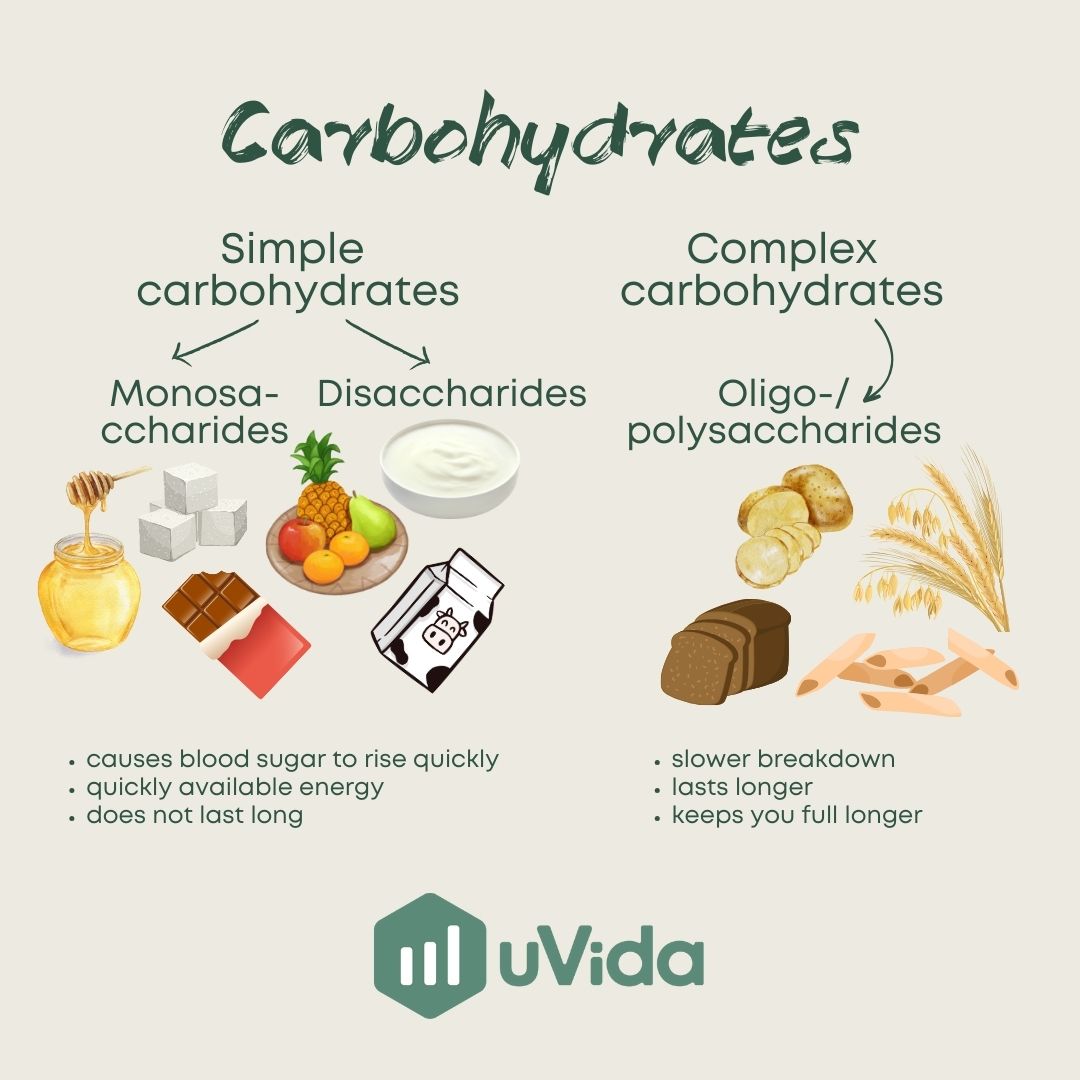In a balanced diet, carbohydrates play a crucial role in ensuring adequate energy levels while promoting good health. It is important to control the amount and quality of carbohydrates consumed and maintain a balanced diet.
Carbohydrates are an important class of nutrients that serve as the main source of energy for the human body. They come in various forms including sugar, starch and fiber.
The role of carbohydrates is diverse
Energy supplier: Carbohydrates are the body's preferred source of energy. They are converted into glucose, which is used by cells for energy. The brain in particular requires glucose as its primary energy source.
Sparing protein use: Adequate carbohydrate intake allows proteins to be used for their primary functions such as muscle building and repair work.
Digestive support: High-fiber carbohydrates, especially complex carbohydrates from whole grains, fruits and vegetables, promote healthy digestion and prevent constipation.
Blood sugar control: Complex carbohydrates are generally digested and absorbed into the bloodstream more slowly, contributing to stable blood sugar control and preventing food cravings.
Vitamins and minerals: Whole grains and certain vegetables that are rich in carbohydrates also contain important vitamins and minerals that are important for a healthy diet.

Metabolic analyses and carbohydrates
Through the world of metabolic analysis at rest and during physical activity, we can shed more light on the individuality in nutrition and training. These crucial insights into our body's processes allow us to make a precise plan about the need for and utilization of carbohydrates, for example.
An important aspect is that not all carbohydrates are created equal. They vary in structure, from simple sugars to complex carbohydrates found in whole grains. Complex carbohydrates from whole grains, fruits, vegetables, and legumes are healthier options because they contain fibre, vitamins and minerals. On the other hand, added sugars and simple carbohydrates found in sweets, pastries and sugary drinks should be limited as they can cause a rapid rise in blood sugar levels and are low in nutrients. The personal need and tolerance of carbohydrates also depends on various factors, such as our activity level, our metabolism and our individual goals, be it weight loss, muscle building or general health.
Through the uVida Food Analysis we can determine our individual carbohydrate ratio. Our breathing filters out exactly how our body reacts to carbohydrates and how they influence our metabolism. This allows us to find out which ratio of carbohydrates, proteins and fats is best for our goals.
In a similar way, uVida Activity enables individual training adjustment, taking our carbohydrate metabolism into account. Whether for endurance training or intense strength training, analysing metabolism helps optimize the timing and amount of carbohydrates to increase performance and achieve our goals.







